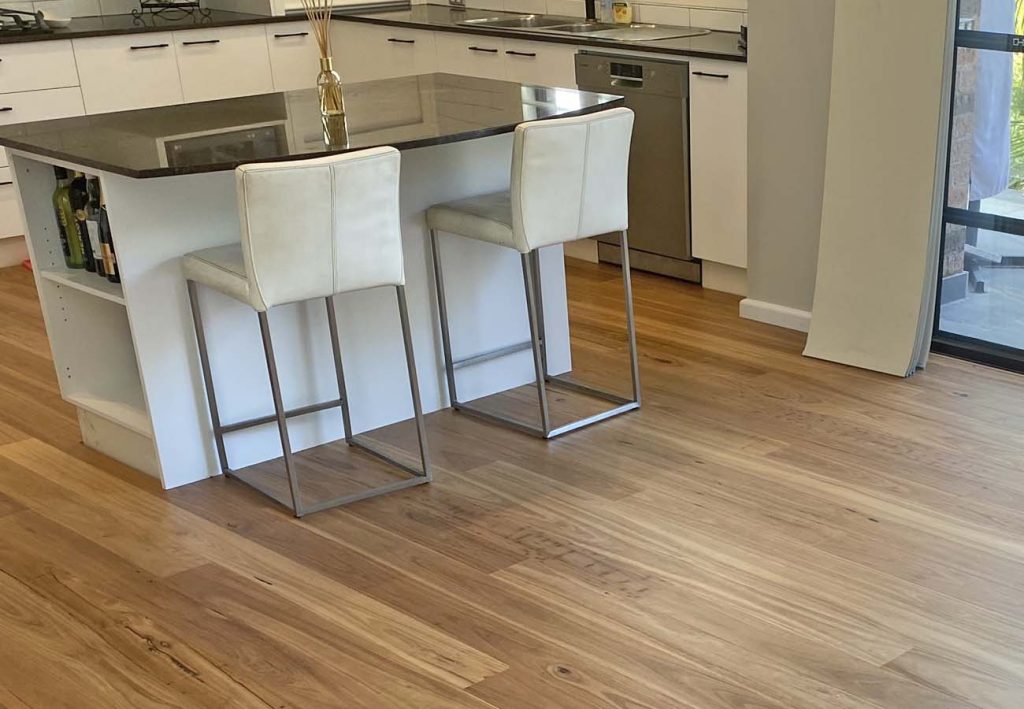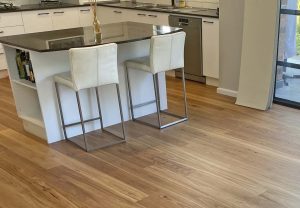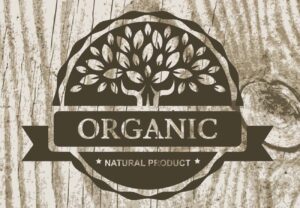Hard Flooring Types
All hard flooring falls into 2 usual categories floating or fixed. Floating floors include engineered timber, laminate, bamboo, hybrid & vinyl. Fixed floors include solid timber, engineered timber & vinyl.
Product development over recent years has seen a plethora of new and innovative offerings, not all of which may be suitable for your project. Environmental impact of a products production is also of concern to today’s buyers. To fully understand the many options available as well as what you truly need we recommend that you speak with a flooring specialist to provide recommendations not only on construction of your flooring but the impacts of sunlight, heat, pets, durability etc.
Solid Timber Flooring
Solid timber flooring (primarily Cypress Pine) was, for decades, the staple flooring choice in many homes. These floors are fixed / nailed as a part of the original construction. Pine floors around the beaches are commonly sanded & polished but unfortunately still retain an overall cheap look & are usually very gapped (often squeaky) as they were never intended as a show piece. To have a solid hardwood timber floor installed usually requires a builder. The timber will need to acclimatise in the area to be covered for at least 6 weeks prior to installation, especially when close to water. It will then require sanding & coating. These processes may render the property uninhabitable for a number of days, possibly a week.
Engineered Timber Flooring
Engineerd timber floors are exactly that – engineered and formed from multiple layers to create a stable timber floor at a more economical price. The “engineering” can take multiple forms with bases being constructed of Hevea (Monkey wood), ply, or HDF (High Density Fibreboard) but all have a layer of real timber as the visible surface and generally come with a prefinished colour and wear layer negating the need for any further treatments. The standard engineered board is 14-15mm thick with a 2-3mm “real timber” layer on top. Others may be budget versions 12-13mm or more expensive 19-20mm Oak boards.
Timber floors will either be an Australian (or European) hardwood or the ever popular Oak. Some of the Pro’s & Con’s are – Oak is cheaper, it can be coloured & textured, looks great & is the most non-reactive timber to moisture however it is a soft timber compared to say Spotted Gum or Blackbutt & is therefore more susceptible to surface damage.
While some engineered timbers can be glued &/or secret nailed to the subfloor they are generally installed as a floating floor with an expansion gap around the perimeter covered either by skirting or specialized trims. Unilin/Uniclick is regarded by professional installers as the best click system available. Tongue & Groove (T&G) options are also available at a reduced product cost but at a higher labour cost for installation as they generally need to be glued together & can be fixed or floated.
Bamboo Flooring
Bamboo is a one off as it is Strand Woven. Particular parts of the plant are mixed with resins to produce a solid 14mm board which is incredibly strong. Bamboo must be installed as a floating floor. Because of bamboo’s high reactivity to moisture & humidity it suffers the worst reputation for problems. Although many of these issues were the fault of inexperienced installers bamboo is being rapidly deleted from many suppliers and just as many showrooms.
Laminate Flooring
Laminates are predominantly produced with a melamine surface – very tough, very durable They replace the real timber layer with a high pressure, heat set printed image. Generally, laminates are harder than real timber and engineered floors. Plus, modern day imaging is so good laminate products can now rival the look of real timber at a significant price advantage. Quickstep is the world’s largest & arguably the best laminate available. Boards should be no thinner than 8mm & usually max out at 12mm. Thicker is not always better but it does have advantages. Laminates are floating floors & should not be fixed or glued. Beware of cheap copy brands as most professional installers won’t touch them.
Hybrid Flooring
Hybrids (usually around 6mm) are the latest advance on the traditional engineered floor in that they replace each layer with man-made product designed to be more stable and harder wearing. Being a varying mix of PVC, timber & limestone they take the best from other products and bring them together. Strictly speaking they are an engineered floor but are usually not referred to as such. The one stand out product is hybrid Stone boards & tiles. This product has an unusually high 70% limestone powder content making more stable and far tougher than any of its’ rivals.
Vinyl Flooring
Vinyls come in both fixed & floating versions. Floating vinyls are a click system, usually around 5mm thick & are laid exactly the same as a laminate with all the same requirements. Fixed versions are either the old school 2-3mm vinyl board with is permanently glued to your floor. Very tough, can look very authentic but it is permanent & virtually impossible to repair. Alternatively, the latest and greatest are the 5mm high tech luxury (acoustic) vinyl planks & tiles which have taken the world by storm. They can look just as real as the best laminates or hybrids but with a few unique advantages. Acoustically they are unbeatable being the only hard flooring that can absorb ambient noise in the room. Also, because they are installed using a PS, (pressure sensitive) non-permanent, adhesive the boards are individually removable & replaceable. Again, buyer beware here – there are at present over 60 cheap brands being imported from China that should NOT be considered.
Getting the right advice
Stephan Lofting at Blue Tongue Carpets Mona Vale has over 40 years experience in the industry and says the right advise is absolutely essential in making an informed decision. Because our industry is still unregulated what you thought was a good product at a good price may turn out to be an expensive mistake.
You can contact Stephan or one of his dedicated team members on 9979 7292 or email sales@bluetonguecarpets.com to discuss your current flooring project. The team are always ready to help.





